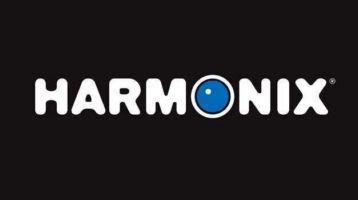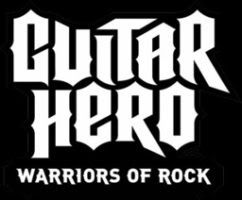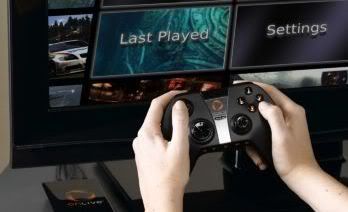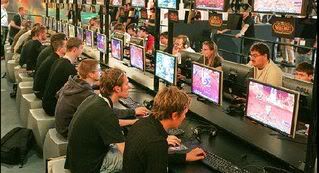A consistently important discussion going on these days is about how the line between video games and movies continues to blur. Stunners like Metal Gear Solid 4 and Uncharted 2 combine big budget presentations with entertaining game play to push the limits of what we have come to expect from our games, creating an experience that rivals the greatest of the Hollywood blockbusters.
I wonder though, what is the possibility of games taking on another characteristic of the film industry? Today's movies almost always have a clear divide between critical darlings and box office blockbusters, in which the movies heralded as the best of the year are not the same movies which appear on the list of the highest grossing movies of the year. How does this compare to the current state of the video game industry? Let's look at some charts:
Ten Ten Rated Movies of 2009 (Metacritic)
94 - The Hurt Locker
91 - 35 Shots of Rum
89 - Still Walking
89 - Goodbye Solo
88 - Tulpan
88 - Up
87 - Gomorrah
86 - The Beaches of Agnes
86 - Ponyo
85 - An Education
Top Ten Grossing Movies of 2009 (IMDB)
1 - Avatar
2 - Transformers: Revenge of the Fallen
3 - Harry Potter & the Half-Blood Prince
4 - Up
5 - The Twilight Saga: New Moon
6 - The Hangover
7 - Star Trek
8 - The Blind Side
9 - Monsters vs. Aliens
10 - Ice Age: Dawn of the Dinosaurs
Between these two lists we have one movie lucky enough to appear on both, that being Pixar's Up. The closest any of the other top ten grossing movies came to appearing on the critic list was Avatar at 16. As you can probably assume, the rest of the Metacritic list isn't anywhere near the top of the sales charts.
Now let's take a comparative look at the video game industry in 2009. The number in parenthesis is the game's score if it appeared on the other list.
Top Ten Rated Video Games of 2009 (Metacritic)
96 - Uncharted 2: Among Thieves (13)
94 - Call of Duty Modern Warfare 2 (1)
93 - Street Fighter IV (11)
93 - GTA: Chinatown Wars (>30)
92 - Batman Arkham Asylum (12)
92 - Forza Motorsport 3 (20)
91 - Dragon Age: Origins (~22)
91 - Assassin's Creed II (5)
91 - Killzone 2 (21)
90 - Mario & Luigi : Bowser's Inside Story (24)
Top Ten Selling Games of 2009 (VGChartz)
1 - Call of Duty Modern Warfare 2 (94)
2 - Wii Sports Resort (80)
3 - New Super Mario Bros. Wii (87)
4 - Wii Fit Plus (80)
5 - Assassin's Creed II (91)
6 - FIFA Soccer 10 (90)
7 - Halo 3: ODST (83)
8 - Dragon Quest IX: Sentinels of the Starry Skies (NA)
9 - Pokemon Heart Gold / Soul Silver (NA)
10 - Resident Evil 5 (86)
Two games, Modern Warfare 2 and Assassin's Creed II, appear on both lists. While this may appear surprising at first, taking a glance just a bit further down the sales lists reveals the fact that Uncharted, Batman, and SFIV make up a group that just barely missed the top of the sales charts, certainly much closer to the top than their critically-acclaimed movie counterparts.
So what's the reason for this discrepancy? Why do big-budget blockbusters like Transformers not receive critical acclaim while their game counterparts like Modern Warfare 2 do? While there could be multiple explanations, I believe the most important reason is the difference in maturity between the two mediums.
The film industry has been around now for over a century, and while video games have been around for about half a century, they haven't really existed on a comparative level with movies since the Atari 2600 launched in 1977. Today both industries are relatively equal in terms of sales numbers and volume of annual releases, but there is no question which industry is regarded as more of an art form by the general and critical populations.
Half a century ago the divide between critical and commercial success didn't exist nearly as strongly in the movie industry as it does today. The highest grossing films of 1959 such as Ben-Hur, North by Northwest, and Some Like It Hot were the same movies receiving most of the Academy Award nominations. Granted this isn't a perfect comparison given the fact the video game industry has expanded much faster than the movie industry did, but looking back through the twentieth century we see a much stronger connection between box office and critical success than we do today. Is it possible that video games could also lose their relationship between commercial and critical success?
Already today there is evidence that the tide may be turning towards critical darlings in video games. So-called indie games like Braid, Shadow Complex, and Flower are three well-reviewed titles released in the past couple of years, and have a lot in common with their critically-acclaimed film industry counterparts. These aren't flashy, heavily marketed, high budget affairs, but critics fawn over them nonetheless, with Braid holding an amazing Metacritic rating of 94, Shadow Complex at 88, and Flower sitting at a still-admirable 87. Are titles like these a sign of things to come? Movies like The Hurt Locker barely appear in movie theatres, but they do appear somewhere on a movie screen and therefore are worthy of review by a large number of film critics. Without the advent of digital distribution games like Flower would have previously never been seen on a console, but now they too are able to appear in the reviews of just about every gaming publication. What makes a game like Braid so appealing to critics? Let them answer in their own words:
Eurogamer: "Still wondering if games can be art? Here's your answer."
1UP: "A monumentally relevant game that speaks highly of its creators and their potential audience's tolerance for new ideas."
IGN: "This strange, wondrous, puzzle/platformer hybrid isn't for everyone. Just the people who like to flex their brain power while holding a controller."
Gamespot: "Braid's deep and mesmerizing tale is evergreen: it is outside of and beyond time. It will never get old."
Those are some awfully artistically-inclined statements are they not? Here we have one of the most highly reviewed games ever; celebrated as such for showing off something we don't usually see in video games. Looking through many of the critical reviews, a consistent message from the critics is yes, it's short and not for everyone, but for the group of people it does appeal to it is absolutely sublime. Now look at this reasoning in the context of the movie ratings: Small-time movies appeal to a narrow audience, but because they appeal to that audience so well it makes them worthy of being labeled the best movies of the year even though a majority of moviegoers have not seen them nor have any interest in doing so.
For now, I am very proud to say that in today's media there is room at the top for both Braid and Uncharted 2 to be celebrated as some of the greatest experiences video games have to offer. Both of these games receive well-earned critical acclaim even though only one of them is lighting up the sales charts. While I think video games have no limit as to where they can go in the coming decades in terms of popularity and becoming the world's favorite form of entertainment, I also think it is not out of the question that fifty years from now we'll be looking at a growing number of the gaming equivalents of The English Patient, titles that truly nobody played but the critics still loved.


















Log in to comment